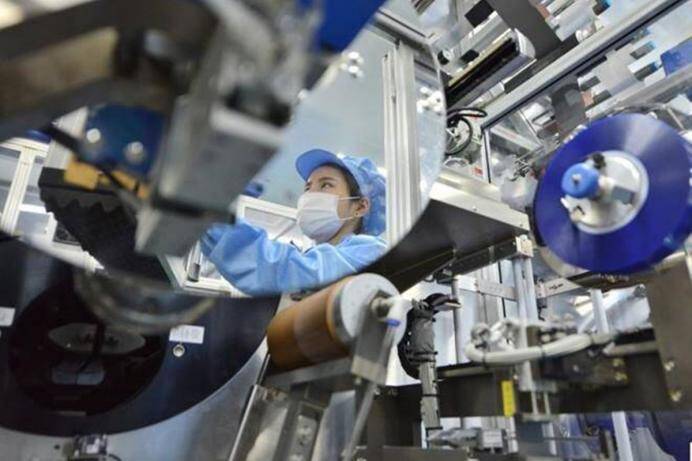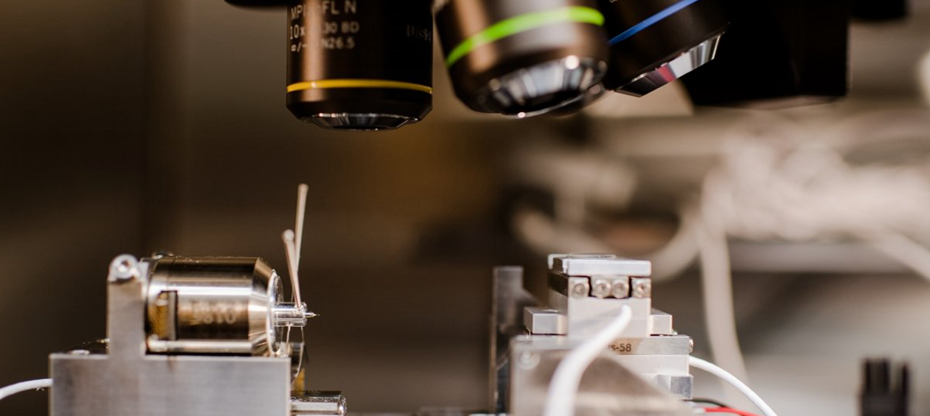Revoluționarea industriei bateriilor: inovații și tendințe
The battery industry has witnessed a rapid evolution in recent years, driven by advancements in technology and a growing demand for more efficient and sustainable power sources. As the world becomes increasingly reliant on portable electronic devices, electric vehicles, and renewable energy sources, the need for high-performance batteries has become paramount. This article explores the innovations and trends that are revolutionizing the battery industry and shaping the future of energy storage.
One of the most significant advancements in battery technology is the development of lithium-ion batteries. These batteries have revolutionized portable electronics, enabling longer-lasting and more powerful devices. Lithium-ion batteries store and release energy through the movement of lithium ions between two electrodes, a process that results in higher energy density and faster charging times compared to traditional batteries. With continuous research and development, lithium-ion batteries have become smaller, lighter, and more efficient, making them the preferred choice for smartphones, laptops, and other portable devices.
The rise of electric vehicles (EVs) has also fueled the demand for high-capacity batteries that can provide long-range performance. The automotive industry has responded by investing heavily in battery research and development. One notable innovation is the solid-state battery, which offers increased energy density, faster charging times, and improved safety compared to traditional lithium-ion batteries. Solid-state batteries use a solid electrolyte instead of a liquid electrolyte, reducing the risk of leakage or explosion. Companies like Toyota and BMW have already announced plans to introduce solid-state batteries in their upcoming electric vehicles, promising to revolutionize the EV market.
Renewable energy sources like solar and wind power have become increasingly popular alternatives to traditional fossil fuels. However, their intermittent nature poses challenges for grid stability. Energy storage systems, primarily based on batteries, have emerged as a solution to this problem. These systems store excess energy during periods of low demand and release it during peak hours or when renewable sources are unavailable. Lithium-ion batteries, with their high energy density and ability to deliver power quickly, are the preferred choice for energy storage. As demand for renewable energy continues to grow, advancements in battery technology will play a crucial role in ensuring a reliable and sustainable energy grid.
In addition to lithium-ion and solid-state batteries, other promising battery technologies are being explored. One such technology is the lithium-sulfur battery, which has the potential to deliver higher energy density and lower costs compared to existing battery technologies. Lithium-sulfur batteries use a sulfur-based cathode and a lithium metal anode, offering the possibility of storing more energy within the same volume. Researchers are working to overcome challenges such as the degradation of the sulfur cathode and the formation of dendrites on the lithium anode to make lithium-sulfur batteries commercially viable.
Another area of innovation is the development of flexible and stretchable batteries. These batteries are designed to be integrated into wearable devices, electronic textiles, and even implantable medical devices. Flexible batteries use innovative materials and designs to withstand bending and stretching without compromising performance. As the demand for wearable technology continues to grow, flexible and stretchable batteries will play a vital role in enabling new applications and improving user comfort.

As the battery industry continues to evolve, sustainability has become a key focus. The extraction and disposal of battery materials have significant environmental impacts. To address this issue, researchers are exploring alternative materials and manufacturing processes. For instance, the use of bio-based materials and recycling of battery components can reduce the carbon footprint associated with battery production. Additionally, advancements in battery management systems and smart charging technologies can prolong battery lifespan, reducing the need for frequent replacements and minimizing waste.
The battery industry is undergoing a revolution driven by advancements in technology and the increasing demand for efficient and sustainable power sources. From lithium-ion batteries to solid-state and lithium-sulfur batteries, innovations are shaping the future of energy storage. Flexible and stretchable batteries are enabling new applications in wearable technology, while advancements in battery sustainability are addressing environmental concerns. As the world transitions to a cleaner and more electrified future, the battery industry will play a pivotal role in enabling this transformation.
-
 Introduction: In today's digital age, where computers have become an integral part of our lives, the importance of peripherals like the PC mouse cannot be overstated. To ensure optimal performance, a reliable power source is crucial. This article explores the advantages of using a lithium battery as the power source for a PC mouse, discussing its efficiency and its impact...Citeşte mai mult
Introduction: In today's digital age, where computers have become an integral part of our lives, the importance of peripherals like the PC mouse cannot be overstated. To ensure optimal performance, a reliable power source is crucial. This article explores the advantages of using a lithium battery as the power source for a PC mouse, discussing its efficiency and its impact...Citeşte mai mult -
 In recent years, the demand for mobile power solutions has grown exponentially, driven by the increasing popularity of camping and outdoor activities. Traditional power sources, such as generators and lead-acid batteries, have proven to be cumbersome and inefficient. However, a revolutionary solution has emerged - the lithium camper battery. With its advanced technology and numerous benefits, it is clear that...Citeşte mai mult
In recent years, the demand for mobile power solutions has grown exponentially, driven by the increasing popularity of camping and outdoor activities. Traditional power sources, such as generators and lead-acid batteries, have proven to be cumbersome and inefficient. However, a revolutionary solution has emerged - the lithium camper battery. With its advanced technology and numerous benefits, it is clear that...Citeşte mai mult -
 As the world moves towards renewable energy sources, efficient energy storage becomes more important than ever. The High Capacity 12V 100Ah LiFePO4 Battery is a game changer in the world of energy storage. LiFePO4 batteries are a type of lithium-ion battery that use lithium iron phosphate as their cathode material. They are known for their high energy density, long...Citeşte mai mult
As the world moves towards renewable energy sources, efficient energy storage becomes more important than ever. The High Capacity 12V 100Ah LiFePO4 Battery is a game changer in the world of energy storage. LiFePO4 batteries are a type of lithium-ion battery that use lithium iron phosphate as their cathode material. They are known for their high energy density, long...Citeşte mai mult -
 Introduction Batteries play an essential role in today\'s world, powering everything from mobile phones to electric cars. Two types of batteries that have gained popularity in recent years are LiFePO4 and lithium-ion batteries. While both batteries are lithium-based, they differ in their composition and performance. In this article, we will compare LiFePO4 vs lithium-ion batteries and determine which one...Citeşte mai mult
Introduction Batteries play an essential role in today\'s world, powering everything from mobile phones to electric cars. Two types of batteries that have gained popularity in recent years are LiFePO4 and lithium-ion batteries. While both batteries are lithium-based, they differ in their composition and performance. In this article, we will compare LiFePO4 vs lithium-ion batteries and determine which one...Citeşte mai mult -
 Introduction In recent years, the global push for sustainability has prompted industries to adopt more eco-friendly practices. Warehouse operations, which often involve heavy lifting and extensive use of machinery, have also taken steps towards reducing their carbon footprint. One significant development in this regard is the emergence of electric forklifts powered by lithium batteries. This article will explore how...Citeşte mai mult
Introduction In recent years, the global push for sustainability has prompted industries to adopt more eco-friendly practices. Warehouse operations, which often involve heavy lifting and extensive use of machinery, have also taken steps towards reducing their carbon footprint. One significant development in this regard is the emergence of electric forklifts powered by lithium batteries. This article will explore how...Citeşte mai mult -
 Lithium iron phosphate (LiFePO4) batteries are becoming increasingly popular in the automotive industry due to their high energy density, long cycle life, and safety features. These batteries are commonly used in electric vehicles (EVs) and hybrid electric vehicles (HEVs) due to their ability to provide high power output and fast charging times. One of the main advantages of LiFePO4 batteries...Citeşte mai mult
Lithium iron phosphate (LiFePO4) batteries are becoming increasingly popular in the automotive industry due to their high energy density, long cycle life, and safety features. These batteries are commonly used in electric vehicles (EVs) and hybrid electric vehicles (HEVs) due to their ability to provide high power output and fast charging times. One of the main advantages of LiFePO4 batteries...Citeşte mai mult -
 The 48V LiFePO4 battery is a type of rechargeable battery that has gained popularity due to its long-lasting performance and reliability. LiFePO4 stands for Lithium Iron Phosphate, which is the chemical composition of the battery's cathode material. This technology is becoming increasingly popular in various applications, including electric vehicles, solar energy storage, and backup power systems. In this article, we...Citeşte mai mult
The 48V LiFePO4 battery is a type of rechargeable battery that has gained popularity due to its long-lasting performance and reliability. LiFePO4 stands for Lithium Iron Phosphate, which is the chemical composition of the battery's cathode material. This technology is becoming increasingly popular in various applications, including electric vehicles, solar energy storage, and backup power systems. In this article, we...Citeşte mai mult

